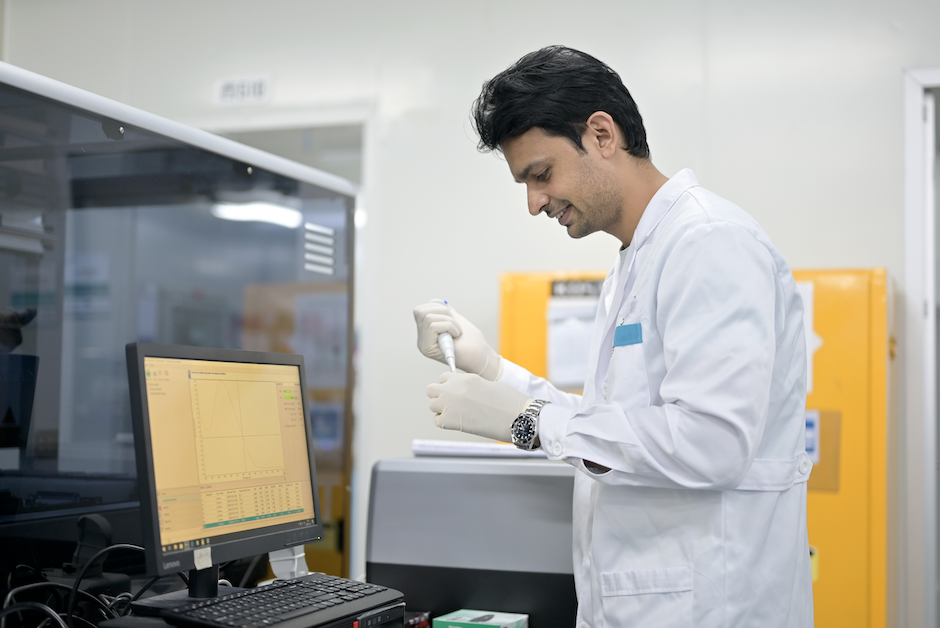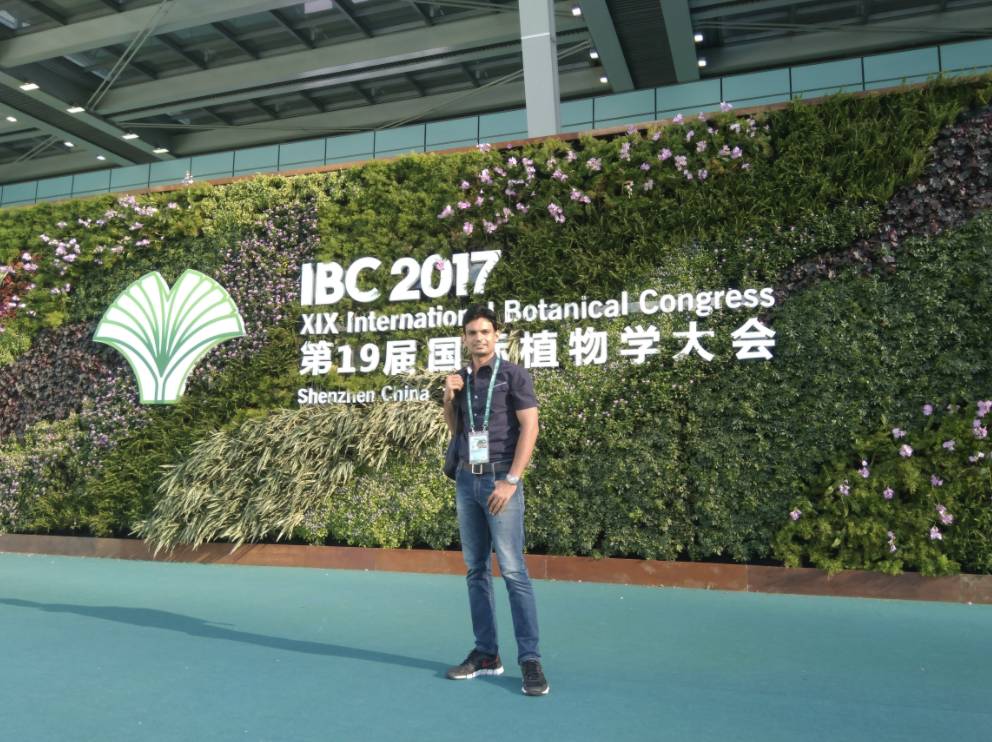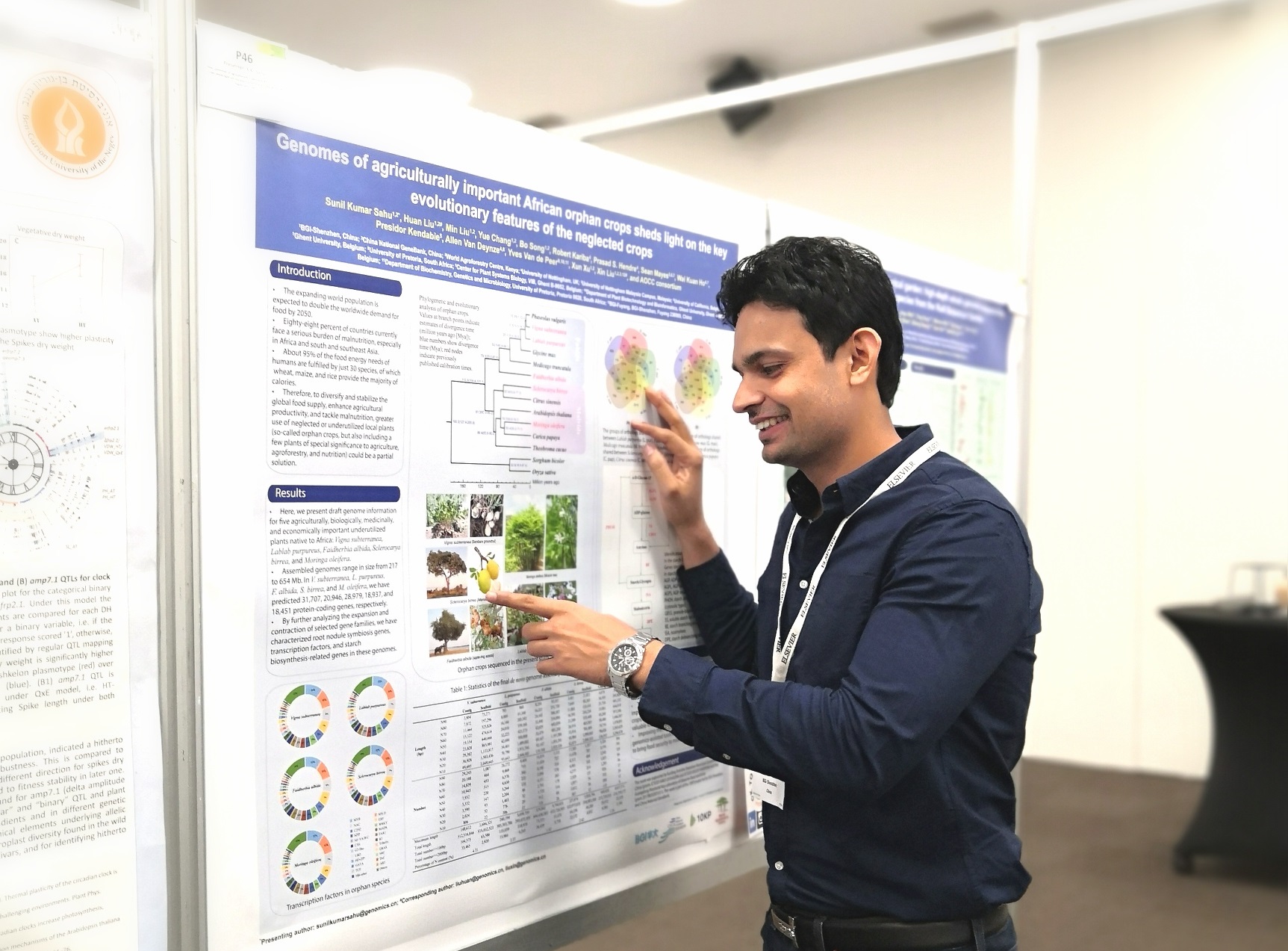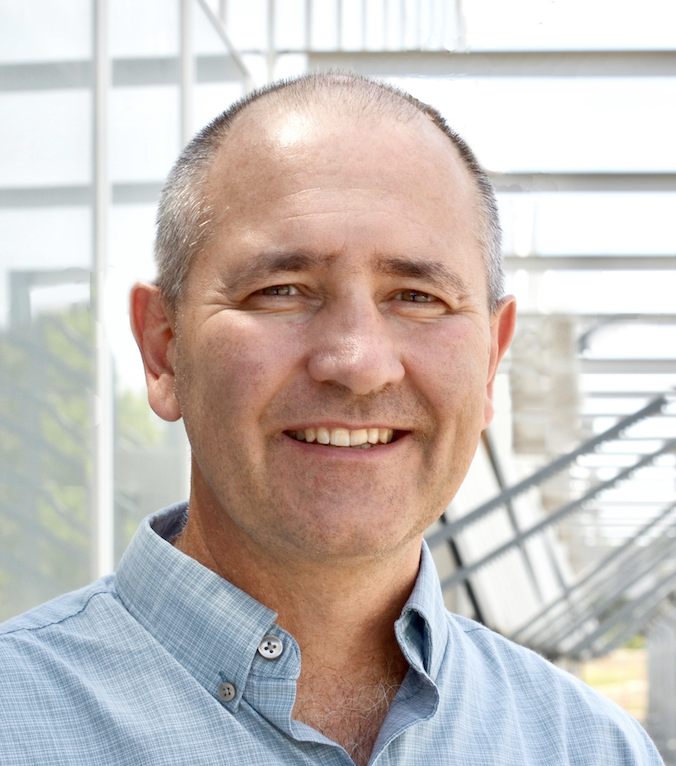As Rising Global Temperatures Affect Crop Yields, Scientists are Identifying Heat and Drought-Resistant African Crop Genes | BGI Perspectives
2022-07-29
What are international scientists doing to enhance food security and nutrition amid rising global temperatures? Today, on the occasion of International Friendship Day, Dr. Sunil Kumar Sahu, a Research Scientist at BGI Group and the internal Project Manager of the African Orphan Crops Consortium (AOCC) Project shares his perspectives from working with a global network of scientists.
 Dr. Sunil Kumar Sahu, Research Scientist at BGI-Research
Dr. Sunil Kumar Sahu, Research Scientist at BGI-Research
The AOCC, in partnership with World Agroforestry (CIFOR-ICRAF), targets to open-source the genomic data from some of Africa's most important food crops to improve their nutrition, productivity and climatic adaptability. These crops are often overlooked and less understood but can potentially play an important role to increase African farmers’ incomes while combating malnutrition. Dr. Sunil makes three key points:
- Africa is poised to contribute 25% of the world population in 2050
- Two-thirds of global calories are derived from just five crops
- Most of Africa's orphan crops are not being utilized as per their potential to combat hunger
1. You came to China as a post-doc researcher in 2015. Tell us the key points that led you to a career in China.
SK: I come from a small village in Chhattisgarh, India, and did my master’s and doctorate degrees at Annamalai University specializing in mangrove research.
My strong interest in science and curiosity to learn more brought me to China. Initially, I was supposed to join as a postdoc researcher under a famous professor in the field of mangrove research at Sun Yat-sen University but due to some unavoidable circumstances, this position was no longer available. Luckily, she was very helpful and recommended me to another professor who gave me an offer. That is how my research career began here.
 Dr. Sunil at International Botanical Congress 2017
Dr. Sunil at International Botanical Congress 2017
When I was at Sun Yat-sen University, I often sent my samples for sequencing at BGI Genomics and became familiar with the company and its sequencing facilities. And in 2017, I got an opportunity to give a poster presentation at the International Botanical Congress held in Shenzhen. This is one of the biggest global conferences in the field of plant science. I was amazed by the infrastructure, research facilities and research directions. After some interaction and communication, I got an opportunity to work here as a research scientist to further improve my skills, especially in plant genomics and bioinformatics.
2. It sounds very serendipitous! At work, what opportunities do you have to meet different people and build friendships?
SK: I'm a certified CrossFit coach and I offer free training to staff members. I also teach English at BGI College. All these activities give me a very good opportunity to interact with many people here. I would like to mention Cecilia who is my CrossFit student and comes for class everyday versus most students who come a few times a week. Within 2 months she has lost six kilograms! Being her teacher and friend, I feel very proud of her achievement and always share this story with other students.
I want to break the stereotype that scientists are lab nerds that have no social life and always stick to one thing. We also enjoy our life, we have family, we have friends, and all these make our lives more happy and healthier.
3. The Food and Agriculture Organization of the United Nations indicates cassava is Africa’s most-produced crop. Could you share why we can’t solely rely on expanding the production of common crops to address global food security and nutrition?
 Dr. Sunil presents a paper which he co-authored on African orphan crops in Spain
Dr. Sunil presents a paper which he co-authored on African orphan crops in Spain
SK: Cassava is a very starchy food. From a nutritional perspective, we need to supplement this food with various other protein sources, like pulses and lentils. These pulses and lentils are one of the major sources of protein in India, where most of the people are vegetarian.
Africa has an arid environment so major crops, such as rice and maize, cannot be grown across the continent. However, orphan crops have special adaptability to grow in these particularly harsh environments. The robustness of orphan crops is vital for farmers to increase their yields, nutritional sources and incomes as global temperatures rise.
However, two-thirds of global calories are derived from just five crops. Therefore, improving major crops such as rice is important too. Using multi-omics research, BGI Group has developed an improved version of perennial rice by crossbreeding varieties. With perennial rice, you can harvest the rice seeds multiple times, but it will grow back. Unlike normal rice where farmers start from zero for every crop, perennial rice can be harvested for 3 to 5 years, giving them more production, with less labor cost. This rice is being grown in many regions worldwide. Recently, we did a field trial in African countries such as Uganda.
4. Out of the orphan crops the AOCC has selected, can you please introduce some of these crops.
The AOCC plans to sequence 101 orphan crops species that are often neglected and not being utilized as per their potential to combat hunger. We select these crops based on their nutritional value, productivity and adaptive features. So far, we have sequenced over ten orphan crops, such as eggplant, breadfruit, jackfruit and the moringa.
The AOCC has identified genes that are very tolerant of high temperatures, low water availability, and high salinity while providing excellent nutrition. For example, the jackfruit has high starch content. The AOCC’s jackfruit sequencing results identified massive expansion of genes related to starch and sugar metabolism which explains why these fruits are very sticky, large and store a lot of energy and nutrition, including various vitamins, and proteins. Many studies have also shown that jackfruit is suitable for pre-diabetics and diabetics.
Jackfruit is one of the largest fruit or vegetable in the world since it is a fruit that is eaten raw when ripe. In Africa, and many countries, including India, unripe jackfruit is cooked. In western countries, it is known as “pulled pork” because it tastes like meat when cooked.
 Dr. Sunil introduces a hybrid eggplant-tomato plant
Dr. Sunil introduces a hybrid eggplant-tomato plant
I also really like eggplant as it has an excellent taste and nutrition composition. When I came to China, my wife and I first encountered barbequed eggplant. BGI Group in collaboration with Huazhong Agricultural University, developed a hybrid eggplant-tomato plant so that it is possible for one plant to provide both eggplant and tomatoes to enhance agricultural productivity.
5. Can you share what how the AOCC members have overcome challenges together?
At the AOCC, one of the most important challenges is collecting samples, because this may mean traveling to remote locations. African AOCC team members play an important role by collecting these samples and sending it to us. But sometimes, shipping the samples from Africa to China is not easy due to customs issues. They then extract the DNA by themselves and send the DNA to us to streamline the transportation process and indirectly reducing the time we spend to do this task.
6. You have done research in both India and China – In your field of expertise, where do you think these two countries could work more closely together?
SK: At BGI Group, we have access to some of the world’s leading genomics and bioinformatics labs at one location. In India, lab facilities are not as abundant or in one location, we often send our samples overseas for genetic sequencing and must wait. If I had access to current facilities during my doctorate studies in India, I could have finished my 3 years’ worth of work within 6 months!
India is one of the most biodiverse countries in the world with several plant species being endemic to the country. And agriculture is one of the most important pillars of the Indian economy. Agriculture, productivity and nutrition are becoming more important than ever before. In my opinion, we can work more closely together to enhance food security and nutrition.
Likewise, Africa is also very biodiverse. The AOCC project seeks to sequence additional varieties of crops. It is possible to use BGI Group's technology and resources to gain detailed insight into these crops’ strong adaptation to the harsh environment of Africa, especially regarding high temperatures and limited water availability. Based on these findings, scientists can improve those varieties by increasing their productivity and making these crops more tolerant to the harsh environment. This is important for the African population as the continent is poised to contribute 25% of the world population in 2050.
A Voice from the AOCC

Prof. Allen Van Deynze, Scientific Director for AOCC
At the AOCC, it is amazing to see the enthusiasm to improve the lives of Africans by leveraging each other’s strengths, sometimes in very creative manners. We continue to innovate with new technologies such as the single-cell work being done at BGI Genomics It is critical though to develop and implement impactful objectives that will directly affect the final stakeholder—the African population in our case. This is the reason we believe that well-trained African plant breeders working in national programs are key to developing new plant varieties using BGI Group and partner technologies to develop the full value-chain.
About the International Day of Friendship
The International Day of Friendship (July 30) was proclaimed in 2011 by the UN General Assembly with the idea that friendship between peoples, countries, cultures and individuals can support communication and the free flow of information and knowledge, to build bridges between communities.
About BGI Genomics
BGI Genomics, headquartered in Shenzhen, China, is the world’s leading integrated solutions provider of precision medicine. Our services cover more than 100 countries and regions, involving more than 2,300 medical institutions. In July of 2017, as a subsidiary of BGI Group, BGI Genomics (300676.SZ) was officially listed on the Shenzhen Stock Exchange.